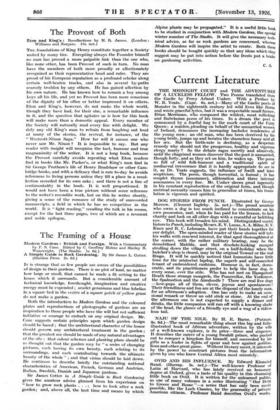The Provost of Both
Eton and King's : Recollections by M. R. James. (London : Williams and Norgate. 15s. net.) THE foundations of King Henry constitute together a Society united by many ties. Excepting always the Founder himself no man has proved a more palpable link than the one who, like none other, has been Provost of each in turn. No man have the members of both more proudly or affectionately recognized as their representative head and ruler. They are proud of his European reputation as a profound scholar along certain well-beaten tracks, and also in several by-paths scarcely trodden by any others. He has gained affection by his own nature. He has known how to remain a boy among boys all his life, and yet no Provost has been more conscious of the dignity of his office or better impressed it on others. Eton and King's, however, do not make the whole world, though they have had, for their size, a remarkable influence in it, and the question that agitates us is how far this book will make more than a domestic appeal. Every member of the Society will naturally read every line with delight. We defy any old King's man to refrain from laughing out loud at many of the stories, the revival, for instance, of the " Westeott-Nixon Saga." How far will it amuse one who never saw Mr. Nixon ? It is impossible to say. But any reader with insight will recognize the tact, humour and true magnanimity of the writer. It is not a long book, because the Provost carefully avoids repeating what Eton readers find in books like Mr. Parker's, or what King's men find in Sir George Prothero's life of Henry Bradshaw or other Cam- bridge books, and with a delicacy that is rare to-day he avoids references to living persons unless they fill a place in a recol- lection recorded for its own sake ; and there is not a line of sentimentality in the book. It is well proportioned. It would not have been a true picture without some reference to the writer's recondite work, but on this he writes shortly, giving a sense of the romance of the study of unrecorded manuscripts, a field in which he ha.s no competitor in the world. It is " light reading," recalling the talk in his rooms, except for the last three pages, two of which are a reverent and noble epilogue.














































 Previous page
Previous page